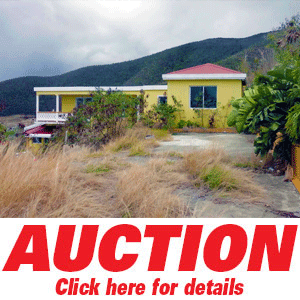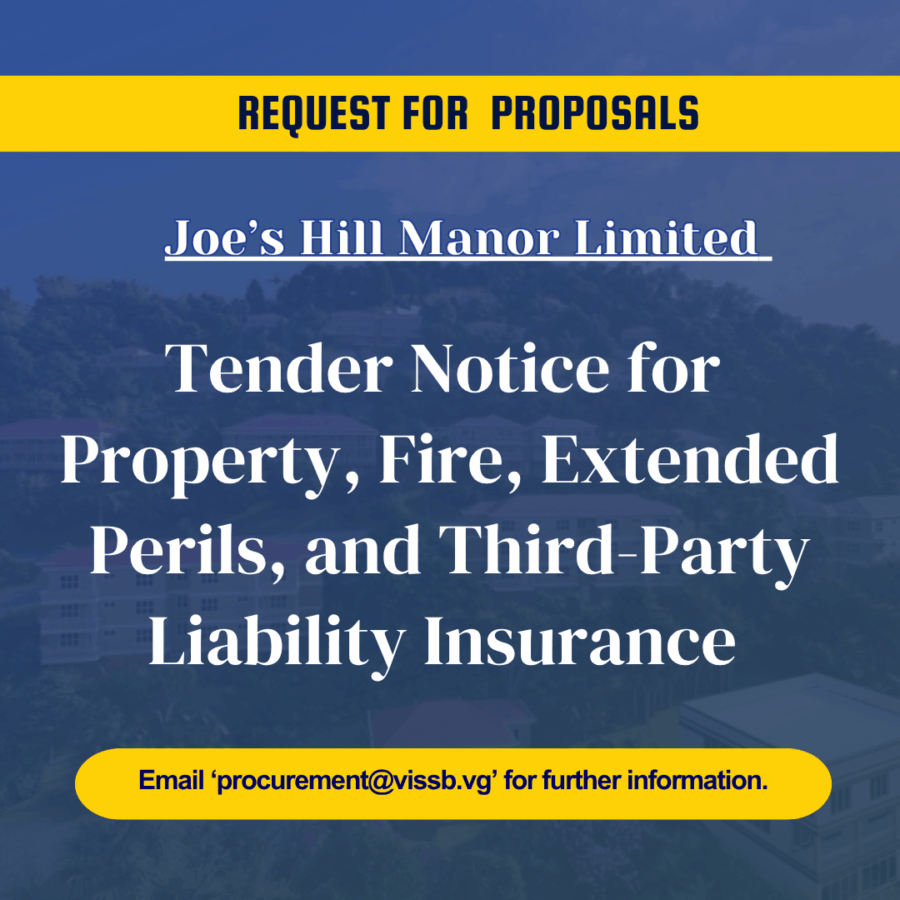Premier encourages residents to power homes with solar energy
Premier Andrew Fahie is encouraging Virgin Islanders to get into electricity generation through solar energy and sell excess electricity to the BVI Electricity Corporation (BVIEC).
Speaking at the commissioning service for a few electric shuttles that the government purchased for Road Town’s Park and Ride Shuttle Service, the Premier advised residents that going green is currently the correct way to move forward with energy generation.
“The sun is free and if you don’t believe me, stand up in it right now and ask if anyone would bill you. We need fossil fuel for now, but it is inevitable that we must shift to green energy. We must go green,” Fahie said.
“With the grid-tie and net billing system we put in with the BVIEC, you can generate your own electrical power for your own use and if you have excess electricity, you can sell it to the grid and earn money for yourself. Now is the time for you to make the switch to solar,” the Premier added.
Fahie advised persons that if they have extra land space or a large rooftop, they can generate electricity to supply themselves, make money selling it to the grid and help protect the environment.
“By the end of this year, you should be selling electricity to the BVIEC. BVIEC should be buying electricity from you instead of you buying electricity from BVIEC. Money could be coming into your pocket by going green. But in the least, you would be cutting down your electricity bill because you would be generating electricity yourself,” Fahie said.
He noted that using solar energy also reduces dependency on the BVIEC grid and if the grid goes down for whatever reason, a person will still have an electricity supply.
“It means that in the event a storm knocks down the powerlines, it means you wouldn’t have to sit in the dark waiting for the lines to be repaired. It pays to go green,” Fahie said.
“You do not have to worry about where you would find trained technicians to do your installation, maintenance and repair. We have people right here in the Virgin Islands. Our very own Virgin Islanders have the skill and that too is based on the proactive work ad foresight of your government,” he continued.
Copyright 2025 BVI News, Media Expressions Limited. All Rights Reserved. This material may not be published, broadcast, rewritten or distributed.





















Lol mind you make bviec raise their prices again?.. They will not like that.
Most people hardly working enough hours and are already struggling……..now dude talking bout solar
the cost to set it up is beyond the reach of the average bvi home owner, perhaps government can give us a hand
checked for the equipment and for me it would cost $135,000.00 before instalation and network tie.
This equates to about 7 years of electric bills. Now after 7 years I would have to replace the batteries and panels, so what is the use?
Maybe in another 2 years the panels will generate enough wattage to make it viable but by then the customs wavierwillbe over.
Panels last at least 25 years and batteries last at least 19 yrs. Both will likely last much longer, just lose some performance. A 7 yr roi is not bad and in addition to the 30% economic savings over 10yrs that you project, you are also doing your part to combat climate change. Think of it as being cheaper than having to move your kids to another planet!! Personally I think investing in panels now and waiting on battery is optimal until battery prices fall and bviec allows you to actually use a battery everday- not just during outages.
When my solar farm generates excess electricity on sunny days I divert it to charge more batteries for the long dark nights and rainy/cloudy days.
having a grid tie system does not provide power when he grid goes down. Having a battery backup and inverter system does, while the two can be combined they are not the same thing.
researched selling power to the grid, couldn’t find anybody confirming that it is possible, apparently YEP in EE was able to do so.
Hi to all in the BVI from Australia!
Just wondering how much systems cost in the BVI.
Here in magical Oz the price of a 6kw system including installation be be as low as A$3000 with all government rebates.
If you are not eligible for a state rebate here in Melbourne, Victoria the cost is around $A6000.
Our electricity prices here vary quite a bit by location, but where I live it is about 26 cents a kilowatt hour.
In addition to that we pay a supply charge which again varies by location, but we pay A$1.10 per day.
These prices have soared over the past 10 years and for electricity they are up about 110% and the supply charge up about 300%.
And when we sell excess electricity they only pay about 6 cents or so per kilowatt hour.
Yes, they sell to you at 26 cents and only pay you 6 cents.
The difference is made up line charges, admin costs, and profit. The “value” of the electricity is only 6 cents.
And finally about 25% of all housing units in Australia now have solar panels on them.
Can anyone recommend some persons/companies that deal with solar energy? Would like to get into it while it’s cheaper to bring in panels.
call Jevone Demmings 540 5935
yes there is no duty on solar equipment for next 18 months.
prices on equipment are going up so the sooner the better.
look at Smartflower BVI on facebook to get ideas.
the average payback time without battery banks is 5-6 years at todays prices.
with batteries obviously more but then you wont need a generator.
solar systems life expectancy is 15-20 years.
An organisation tried this and found the grid tie cost was more than the reimbursement from BVIEC!! The price structure needs reviewing
I don’t think the Premier realizes what the BVIEC Power Act actually does. There are few electricians that can certify and the “red tape” is horrendous (borrowed verbatim from California). Maybe the PM should try applying to install solar electric on his new house?
Anyone consider the fixed costs at Pockwood that need to be paid regardless of output? You reduce demand by generating via solar, but those costs still exist and now have a smaller customer base (by kWh) to distribute these costs. The small ,an who cannot afford solar will now have to shoulder the burden of higher rates. Can’t store the generated electric like it a can of peas, mus5 be used as it’s made.
Thanks for sharing such informative and useful content with us keep sharing on such types of articles.
https://www.ecorelief.com.au